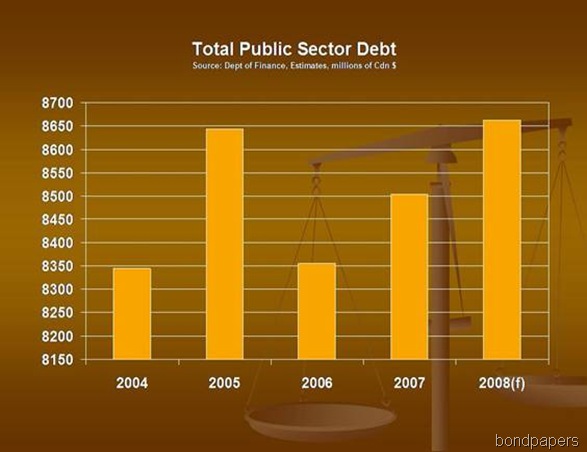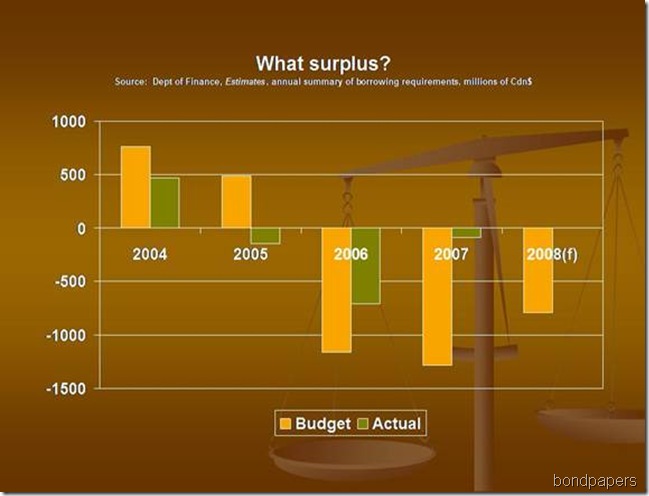Public relations involves communicating with people to gain and maintain support.
Communicating: the activity of conveying information.
Information: a collection of facts or data or knowledge about specific events or news.
Seems pretty easy both to understand and to do, but apparently not.
Take this sound bite, for example, from a news conference to answer reporters' questions about the dismissal of the lab director at the Health Sciences Complex in St. John's:
"I implore you, this decision today was made about the future, not about the past."
Now lest you think this is a case of selective editing, I'd suggest you follow the link to the TransCon story on the news conference. Notice how little of it is taken from information - that is hard facts - told by the people sitting at the head of the boardroom table.
Most of it, like most of the news stories on this firing, draws attention to other issues, like evidence at the Cameron Inquiry about the improper and possibly illegal disposal of Crown assets. A piece of important laboratory equipment was handed over to a private individual apparently free of charge. This individual refurbished it and sold it for a tidy profit. What's more, the computer that went with the machine included patient data - it could be as much as every test ever run on the thing - which the Inquiry managed to retrieve.
There may well be other aspects to this that aren't in the public domain, but with just what is already out there, it isn't hard for people to put two and two together and conclude Gulliver's sudden departure is connected to events that came to light at the Cameron Inquiry.
What you have in this case could be called uncommunication.
Think of it as the opposite of communication because uncommunication doesn't involve the conveying of facts, data or knowledge.
Quite the opposite. It's not about conveying information at all. Uncommunication actually leaves the recipient in worse shape - at least with respect to facts, data and knowledge - than if he or she knew nothing at all.
Take another government example of uncommunication: the workplace health and safety commission's computer security failure. You don't have to look hard to see an effort to avoid providing information - facts, data and knowledge - to anyone. There are plenty of words strung together as sentences but, as with the Eastern Health comment above, they are for the most part devoid of any clear meaning.
Or consider the lighter version, namely the tendency of cabinet ministers to repeat cliches and verbal ticks so frequently they get turned around in them. Like, this line from the Premier's scrum on Monday:
...it’s so important for our children, for our youth, to realize that this is a historic day, this is a turning point for them, in their lives, on a go-forward basis.
Yes, even the future is coming on a go forward basis. Perhaps we will move forward on a go forward basis into that future. The Premier's Maserati has three gear positions: Go forward on a go forward basis, go backward on a go forward basis and park on a go forward basis. He likely bought it after doing the due diligence piece, another of his cliches that every cabinet minister recites.
His language is so riddled with verbal ticks and meaningless phrases, it is difficult sometimes to understand if he understands what he is saying.
Let's not forget his "don't quote me on that" bit from the same scrum:
we’re just very proud and honoured and very pleased that in fact right now we can go it alone and excuse me, don’t quote me on that we can go it on our own, from that perspective.
If there is a difference between "we can go it alone" and "we can go it on our own" then it is one only in the Premier's mind. If there is some importance to that phrase then that too remains only in the Premier's mind. We are going it alone on the Lower Churchill supposedly, but are looking for financial backing, financial partners and a loan guarantee from Ottawa.
The phrase means nothing.
This phenomenon is not confined to government circles.
Take, for example, the case of NLRC, the proposed refinery near Come By Chance. At the heart of the company's recent legal travails appears to be uncommunication; that is, according to a statement of claim the company failed to disclose that key financial backers had withdrawn. That issue hasn't be clarified such that a news report on Thursday stated that the company was fine until law suits started.
However, that may not be true. The company may have appeared to be fine. But if the statement of claim proves true, that was only an appearance. Company statements, including the memo obtained by CBC discuss generalities without conveying meaningful information. If the statement of claim is true, there may even have been withholding of information - in other words: uncommunication.
The trend is not universal.
Rutter Technologies announced on Thursday it had won yet another contract to build components for the light armoured vehicle family currently in service in both the Canadian and United States armies. The news release contains all the relevant information you need to know why this is important plus there are a couple of obligatory feel-good statements from key people involved.
Summary: $14.6 million from General Dynamics Land Systems to build electrical systems for the Stryker vehicle over the next 19 months that will increase the Stryker's current carrying capacity. The components will be built by Rutter in St. John's at its facility on Thorburn Road. Rutter will hire an unspecified number of additional people and add another shift at its plant.
Lay that release side by side with one announcing yet another half million dollars of public money in a manufacturing company and you'll see the uncommunication of the government release. The feel-good statements far outweigh the factual stuff, a hall-mark of uncommunication.
As Rutter demonstrates, the trend to uncommunication is not universal.
There is still hope...
on a go-forward basis.
Arrrrrggggghhh.
-srbp-
 1. Reduce the public debt by 50% within 10 years. Beginning in the early 1990s, successive administrations restructured public borrowings to convert debt held in foreign currency. As a result, the current burden on the treasury is significantly reduced and uncertainty due to currency fluctuations has been all but eliminated.
1. Reduce the public debt by 50% within 10 years. Beginning in the early 1990s, successive administrations restructured public borrowings to convert debt held in foreign currency. As a result, the current burden on the treasury is significantly reduced and uncertainty due to currency fluctuations has been all but eliminated.  2. Balance the books, every year. Government surpluses in recent years have been built on the blind good fortune of astronomical oil prices. Those prices are an unreliable source of cash. On a cash basis, the provincial government has actually been in debt each year since 2005. That means new borrowing to add to the burden of public debt.
2. Balance the books, every year. Government surpluses in recent years have been built on the blind good fortune of astronomical oil prices. Those prices are an unreliable source of cash. On a cash basis, the provincial government has actually been in debt each year since 2005. That means new borrowing to add to the burden of public debt.